Wealthy Californians share why they’ve left the Bay Area for Idaho and Arizona
California families have left the Bay Area for low-cost neighborhoods, trading their duplexes and rental apartments for larger, quieter homes.
The average cost of homes in the Bay Area is about $2.2 million — up 2.9 percent compared to two years ago, according to Zillow.
High housing costs and the city’s changing culture prompted four wealthy families to look for homes elsewhere, some entirely out of state.
Ken, 69, and Michele, 68, Freeze have left their $751,000 home in Martinez, Contra Costa County, which was originally purchased in 1987 for $167,000.
They had originally settled there as members of the U.S. Coast Guard and loved California, but when they retired they didn’t like the area’s transformation.
Ken, 69, and Michele, 68, Freeze left the Bay Area when they planned to retire because they didn’t like how the area had changed
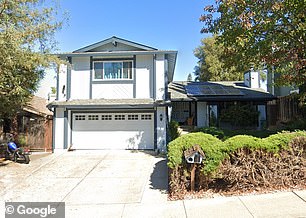
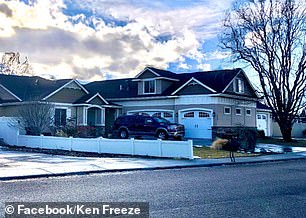
Instead of going to Placerville, California as they originally planned, they fell in love with Meridian, Idaho, while watching the August 2017 solar eclipse
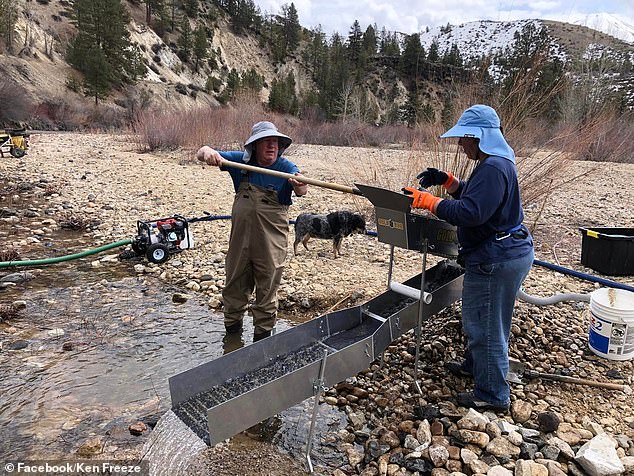
Now the couple spends their weekends searching for gold deposits in the nearby riverbeds, hunting for artifacts with metal detectors and spending time in their woodturning workshop, built in the garage.
The couple said The Mercury News: “The homeless situation in downtown Martinez was just starting to get out of hand. The beautiful Marina Park was just covered in needles. People didn’t want to take their families there.”
Instead of going to Placerville, California as they originally planned, they fell in love in Meridian, Idaho, while watching the August 2017 solar eclipse.
They made their move official in 2020 and sold their home — moving into a 2,880-square-foot home with a five-car garage for $496,000.
Now the couple spends their weekends searching for gold deposits in the nearby riverbeds, hunting for artifacts with metal detectors and spending time in their woodturning workshop built in the garage.
Jared Troutman, 45, and Grace Xu, 37, are two other former Californians who recently decided to leave the state, the Mercury News reports.
The couple left their one-bedroom rental home in San Bruno, which cost them $2,600 every month, for a beautiful 2,223-square-foot, three-bedroom, two-bath home in Phoenix, Arizona, which they bought for $660,000.

Jared Troutman, 45, and Grace Xu, 37, originally thought about buying a one-bedroom house in Half Moon Bay, but couldn’t justify the $1 million price tag
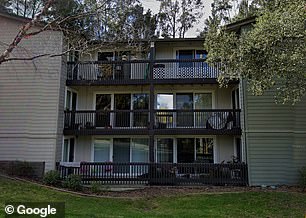
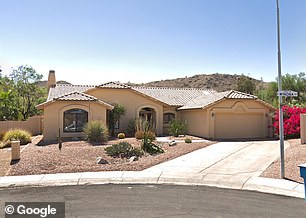
This move was prompted by the 2020 COVID-19 pandemic
The move was prompted by the 2020 Covid pandemic. The couple told The Mercury News they originally considered buying a one-bedroom cottage in Half Moon Bay, but couldn’t afford the $1 million price tag justify.
Since Troutman was working remotely and Xu’s office had a location in Phoenix, the situation worked out perfectly.
Their home, which they bought in 2021, has a pool, mountain views and is surrounded by palm trees — which Troutman joked you couldn’t get in California unless you were billionaires like Elon Musk.
The couple told the newspaper that they pay less for their mortgage than for their apartment in San Bruno.
Another couple, Susan, 47, and Dan Hyland, 47, moved in 2019 for better education for their two children and a change of pace, but chose to stay in California.
The family originally rented a 1,200-square-foot home in San Jose’s Willow Glen neighborhood, but traded it in for a $1.13 million, 4,200-square-foot home in Granite Bay, California.

Susan, 47, and Dan Hyland, 47, moved for a quiet town and better education for their two children, but chose to stay upstate in 2019
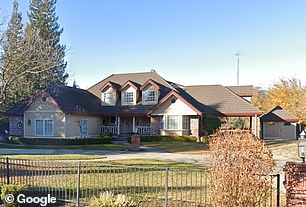
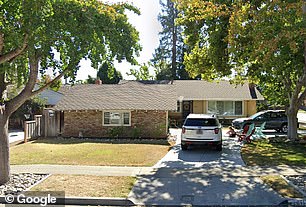
The family decided to move elsewhere in the state
Susan told The Mercury News, “I was rooted in Willow Glen. It felt very scary for us to leave, but once we found a community and environment like where we are now, we never looked back.”
They sold a duplex rental home they owned in North San Jose, allowing them to make a significant down payment on their home.
Mary Ezell-Wallace, 73, and Samuel Wallace Jr., 83, moved to Arkansas to reconnect with Mary’s southern roots after leaving California.
Oakland was where the couple originally settled for about four decades. Mary owned a beauty salon near a bustling city center in the 1990s.
But Mary described to The Mercury News how she felt a shift in the 2000s, saying the area started to feel more like a “Third World country.”
“I didn’t want to wait until things got worse than they already were.”
Their solution was a move to El Dorado, Arkansas, where Mary had grown up. The couple left their four-bedroom, three-bathroom home, which they originally bought in 2006 for $106,000, and purchased a beautiful 5,500-square-foot home for $400,000 — which they affectionately refer to in Facebook posts as the ‘Wallace Estate’.

Mary Ezell-Wallace, 73, and Samuel Wallace Jr., 83, moved to Arkansas to reconnect with their Southern roots
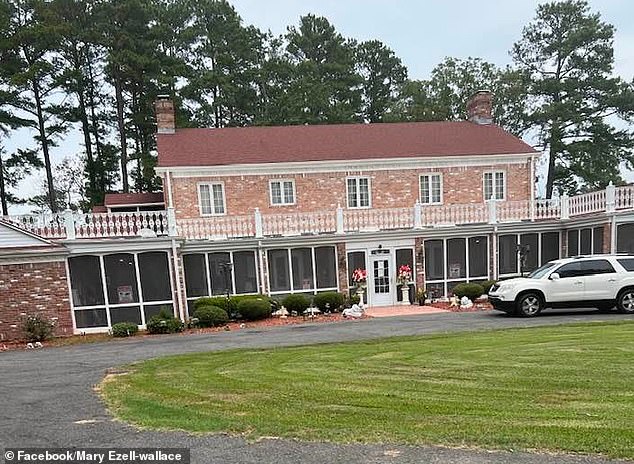
After four decades in Oakland, California, Mary told The Mercury News how she felt a shift in the 2000s — she said the area started to feel more like a “Third World country”

Their solution was a move to El Dorado, Arkansas, where Mary had grown up. The couple moved out of their four-bedroom, three-bathroom home that they originally purchased in 2006 for $106,000 and purchased a beautiful 5,500-square-foot home for $400,000 that they affectionately call the “Wallace Estate” in Facebook posts.
Nearly one in five homes sold in San Francisco last year sold at a loss – far above the national rate.
Murders, robberies, burglaries and widespread public drug use are forcing residents to flee the city – and keeping people from moving to what was once America’s hottest real estate market.
The 17.8 percent of San Franciscans who lost money selling their homes in the three months to the end of February is close to the highest level in a decade. And it’s four times the national average of 4.3 percent.
The migration rate to San Francisco has been net negative since 2014, meaning more people are leaving the city instead of settling. The worst figure was in 2021, when more than 55,000 people left, according to figures The San Francisco government website.
But the pace of international migration has increased – that is, people moving to or from another country – with 6,201 people having settled.
The city attributes this rate to people losing their jobs as companies lay off workers during and after the pandemic, to personal decisions and to retiring or leaving the workforce.
